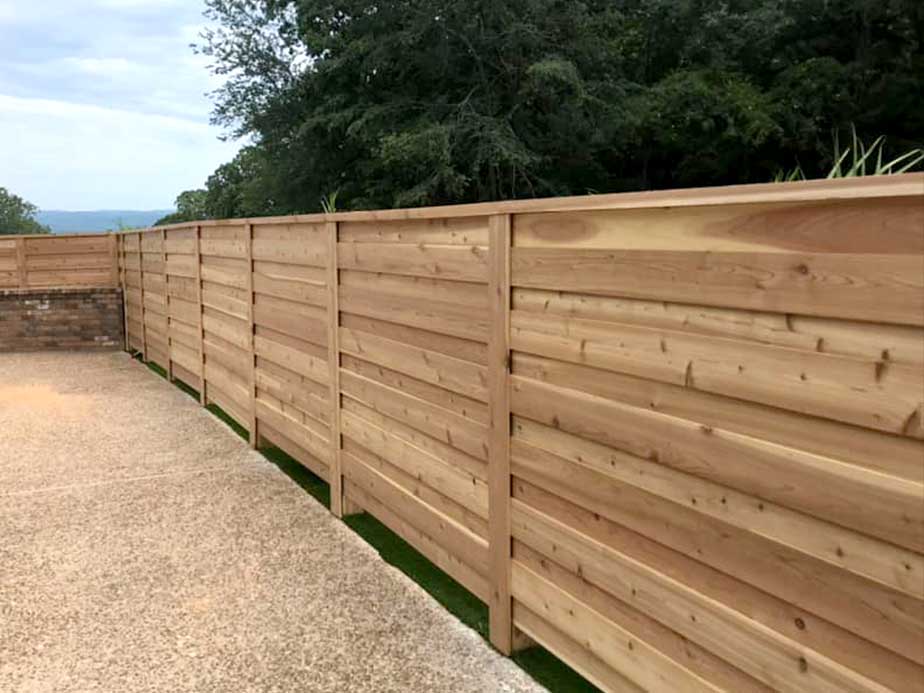All Categories
Featured

Plastic fences are a preferred selection for property owners because of their longevity, low upkeep demands, and lasting look. Unlike wood fencings, vinyl does not require to be painted or stained regularly, yet it still requires regular cleaning to maintain its clean, fresh appearance. Dust, particles, and ecological factors can affect the surface area, making it needed to make use of the appropriate cleaning methods to maintain your vinyl fencing looking its best. Below's an overview to the finest techniques for cleansing a plastic fencing.
- Start with Routine Sweeping or Dusting. Routine upkeep is important to stop dust and particles from developing up on your vinyl fence. Using a broom with soft bristles, delicately sweep across the surface area of your fence to remove any loosened dust.
- Make Use Of a Mild Soap and Water Solution for General Cleaning. For regular cleansing, a light soap and water remedy is usually all you require to eliminate light dirt and discolorations. Stay clear of harsh chemicals, as they can harm the plastic surface. Right here's exactly how to clean your fence properly:

Step 1: Mix a service of warm water and a percentage of mild meal soap in a pail. Go for about 1/4 mug of soap for each gallon of water. Step 2: Make use of a soft towel, sponge, or non-abrasive brush to use the soap solution to the surface of your fence. Step 3: Gently scrub the surface area to remove any kind of dust, grime, or stains. Make certain to clean up both sides of the fence for an extensive task. Step 4: Wash the fence thoroughly with a yard hose pipe to eliminate any kind of soap residue. This method is ideal for regular cleaning and assists maintain the tidy, intense look of your vinyl fence.
- Power Washing for Tougher Spots. If your fence has built up more persistent dirt, algae, or mold and mildew, a power washing machine can aid to restore its look. Power washing is a quick and effective approach, yet it is very important to make use of the right technique to prevent damaging the plastic. Comply with these steps when using a power washing machine:
Step 1: Establish the power washer to a low-pressure setup (concerning 1,500 to 2,000 psi) High-pressure water can harm plastic, so it's critical to keep the stress low. Step 2: Hold the nozzle regarding 2 feet far from the surface of the fence. Aim to spray from the top of the fence downward, working your method throughout and down. Step 3: Maintain the nozzle relocating a sweeping movement to avoid concentrating pressure on one place. Tip 4: Wash completely, ensuring that all water and debris are removed. This method is fantastic for large areas or fences that have not been cleaned up in a while.
- Dealing With Mold And Mildew and Mildew. In shaded or moist locations, plastic fencings can occasionally develop mold or mold growth. It's important to clean up these areas immediately to avoid lasting damages. To eliminate mold and mold, utilize a gentle cleaning service made from either white vinegar or bleach. Below's how to cleanse these persistent developments:
Step 1: For vinegar, mix one cup of white vinegar with a gallon of water. Conversely, for a bleach remedy, mix 1/4 mug of bleach with a gallon of water. Step 2: Apply the option directly to the impacted areas using a sponge or soft towel. Step 3: Let the option sit for about 10 mins to break down the mold and mildew or mildew. Tip 4: Gently scrub the location with a soft brush to remove the development. Step 5: Wash the fence completely with water to get rid of any type of deposit. Constantly beware when making use of bleach, as it can tarnish surface areas and other products around the fence. If the mold and mildew trouble persists, you may need to repeat the cleaning or get in touch with a professional.
- Use Vinyl-Specific Cleaner for Heavy-Duty Jobs. If your fencing is heavily tarnished or you're taking care of difficult build-up like grease or tar, consider making use of a vinyl-specific cleaner. These cleaners are developed to be safe on vinyl while efficiently eliminating stains. Make sure to follow the product's instructions carefully and check it on a small location before applying it to the whole fencing.
- Protecting Against Future Dirt Build-Up. While cleaning your plastic fencing is very important, you can likewise take actions to lessen the amount of cleaning needed. Here are some avoidance suggestions:
Trim vegetation: Keep bushes and trees far from your fence. Overgrown plant life can catch moisture versus the fencing, promoting mold and mildew and mildew development. Seal any type of voids or cracks: Check your fence periodically for cracks or spaces that can let dust or water in. Sealing these locations can prevent particles from gathering and making cleaning much easier. Set up a protective layer: Some homeowners apply a vinyl-safe protective finishing to aid avoid dirt and stains from sticking to the surface. 7. Employing a Specialist Cleaning Service. If you choose to leave the cleaning to the experts, lots of expert cleaning solutions concentrate on exterior cleaning, consisting of vinyl fencings. They have the ideal equipment and knowledge to safely and effectively tidy your fencing, making certain that it preserves its look without creating damages.
Conclusion. Cleaning up a plastic fence doesn't have to be made complex. With a little upkeep, your vinyl fence will continue to improve your residential property's curb charm and supply long lasting sturdiness.
Latest Posts
The Benefits of Regular Car Maintenance at Montclare Auto Repair Reduces Costs
Published Jun 01, 25
1 min read
Protect Your Home with Quality Residential Roof
Published May 25, 25
1 min read
How to Know When Your Car Needs Professional Auto Repair at Montclare Auto Repair
Published May 22, 25
1 min read